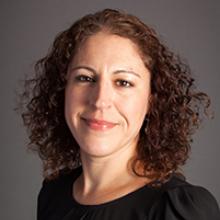Credential Systems │Building Quality in Afterschool
Credentials certify performance based on a set of defined skills and knowledge. They allow established or emerging staff to be recognized for their competence and commitment to professional growth. Professionals interested in earning a credential must complete a set number of courses and/or training hours and show evidence of skill development. The credentialing process can provide a structured path for professional development and establish the parameters for compensation.
Increased training and education associated with credentialing programs help shape the professional expectations for staff. States with credential systems have (a) improved working conditions for staff, (b) influences on higher education course offerings, (c) increased staff participation in higher education, and (d) coordinated public policy changes that support credentialing and professional development compensation (Dennehy, Gannett, & Robbins, 2006). Credentialed staff report greater self-confidence in their performance, increased skills and knowledge, greater interest in pursuing higher education, increased wages, and job satisfaction (Gannett, Mello, & Starr, 2009).
To date, afterschool staff have no nationally recognized credential system. Rather, states may invest in a credential system to meet their needs. Based on the 2017 Landscape of Quality, 23 states already have a credential system for afterschool staff, and five states are in the process of developing one. The return on investment for states is more qualified afterschool educators, which, in turn, leads to higher quality programs for youth. Research suggests that well-trained staff, such as those with credentials, are more likely to deliver high quality programs (Dennehy & Noam, 2005). The New York State Network for Youth Success developed one of the first credential programs in the United States in 2002. New York was struggling to find staff who were qualified to work with school-age youth; due to the credential, the network is finding that it has more qualified staff available in their state.
Resources
Building an Afterschool Credential System (PDF): The New York State Network for Youth Success was among the first organizations to launch a school-age credential system. AIR interviewed Kelly Sturgis and Erin Broderick, who manage the New York State School-Age Care Credential, to learn about its development, use, and growth.
Further Reading
Body and Soul: Reflections on Two Professional Development Credential Pilots in Massachusetts (PDF): Two experts from the National Institute on Out-of-School Time, Georgia Hall and Ellen Gannett, draw on the evaluations of two credential pilots for afterschool staff to describe program models and assess participants’ learning.
Credentialing for 21st CCLC Staff: An Overview of the Benefits and Impacts (PDF): Three experts from the National Institute on Out-of-School Time, Ellen Gannett, Sarah Mello, and Elizabeth Starr, describe two credentialing models and present the benefits of a nationally recognized credential for afterschool staff.
Evidence for Action: Strengthening After-School Programs for All Children and Youth: The Massachusetts Out-of-School Time Workforce (PDF): Developed by Achieve Boston, an initiative of Boston After School & Beyond, this research report describes the afterschool workforce in Massachusetts including characteristics such as education, compensation, retention, and diversity.
Setting the Stage for a Youth Development Associate Credential: A National Review of Professional Credentials for the Out-of-School Time Workforce (PDF): Three experts from the National Institute on Out-of-School Time, Julie Dennehy, Ellen Gannett, and Rachel Robbins, review credentialing efforts across the United States to present the impact and utility of credential systems and discuss the partnerships and other supports needed to sustain credentialing systems.

